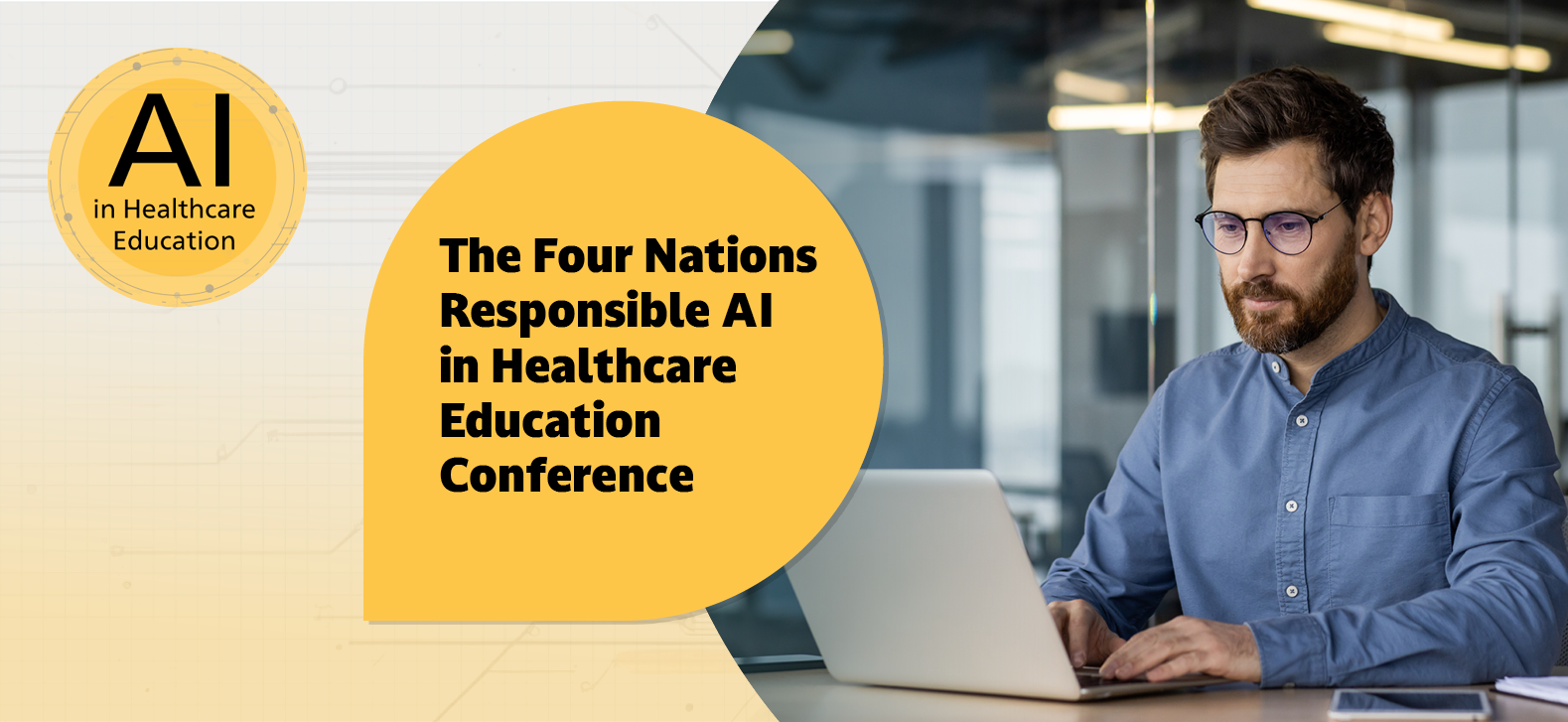Four Nations Responsible AI in Healthcare Education Conference 2026 – AI in Educational Assessment: Reforming, Redesigning and Reshaping
Call for Case Studies
Conference date: 23 April 2026, 13.30 – 17.00, Online
The closing date for submissions is the 20/02/26.
We are inviting contributions for the Four Nations Responsible AI in Healthcare Education Conference 2026. This event will examine how AI is reshaping educational assessment across health and care, including where its use should be integrated, limited or reconsidered within learning and professional contexts.
Conference Themes
- Responsible AI in assessment: policies, principles and good practice to protect assessment integrity
This theme explores safe, ethical and trustworthy use of AI in assessment, ensuring fairness, transparency and alignment with professional and regulatory expectations.
- Keeping people at the centre of AI‑enhanced assessments
This theme highlights the continued importance of human judgement and prioritising the learner experience, even as AI becomes embedded in assessment processes.
- Developing staff and student confidence to use AI in assessment
This theme focuses on capability‑building across educators, assessors and learners, helping the sector use AI confidently, ethically and effectively.
What We Are Looking For
We welcome case studies that:
- align with one, some or all of the conference themes
- relate to healthcare education, including undergraduate, postgraduate, workplace‑based and regulated professional training
- introduce examples of practice, innovation, evaluation, conceptual approaches or early‑stage work
- may originate from educators, assessors, learners, organisational partners or collaborative groups
We encourage a broad range of contributions, recognising that emerging practice is valuable and that different organisations are at different stages in their use of AI.
How to Contribute
Submitting a case study takes approximately 5–7 minutes. Your information will support conference planning and communication.
Submit case studies here: Call for case study contributions on the use of AI in assessments in healthcare education – Fill in form
You can read more about how your personal data is used here:
https://www.england.nhs.uk/contact-us/privacy-notice/nhs-england-merger-with-nhs-digital-and-health-education-england/
The closing date for submissions is the 20/02/26.
We look forward to showcasing contributions from across the four nations and learning from your experiences.
___________________________________
Previous meetings
Four Nations Responsible AI in Healthcare Education Conference – November 2025 – visit the Learning Hub for the full programme and recordings of the talks and slides here




Comments are closed.